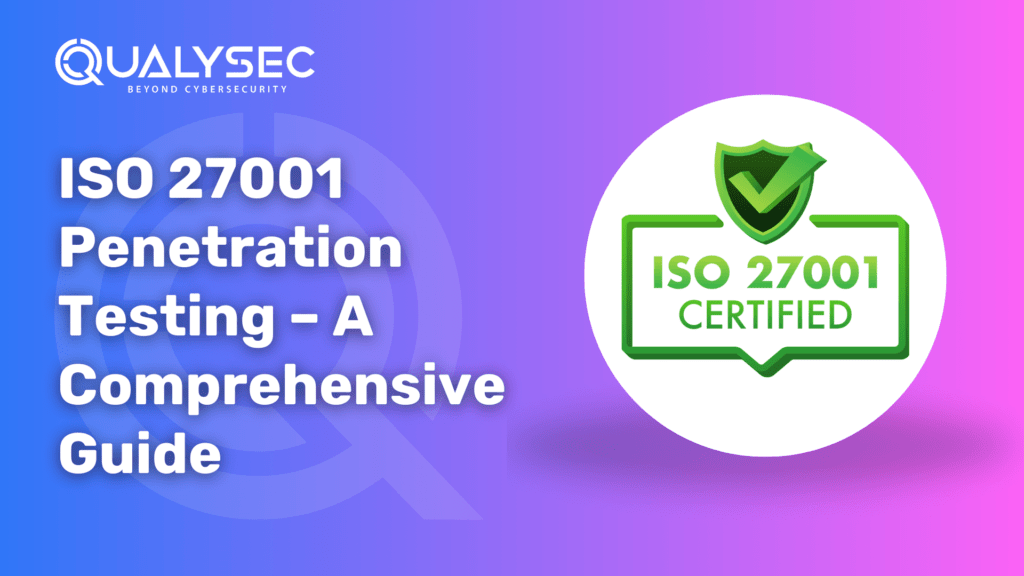ISO 27001 Penetration Testing – A Comprehensive Guide
One common question that comes up when enquiring about ISO 27001 is: Is it necessary to include security penetration testing […]
Find out who we are and what drives us. Learn about our journey and our commitment to cybersecurity
Join our dynamic team of cybersecurity experts. Explore current job openings and find out why Qualysec is the ideal place to advance your career
Our satisfied customers rely on us to protect their digital assets with top-notch security services
Experience a dynamic life and grow with exciting opportunities at QualySec
Hear directly from our clients. Explore real-world success stories and see how we've helped several businesses
Trusted and recognized for excellence. Explore our awards and accolades.
Want to be Qualysec's partner network? Learn about the partnership opportunities we have.
Ready to connect? Whether you have questions or need our services, we’re here to help. Reach out to us today
Get your website app checked for vulnerabilities before hackers exploit them.
Check your mobile app’s security capabilities against real-world attacks
Ensure your IoT devices and products are resilient against cyber threats
Evaluate and strengthen your cloud security posture with expert assessments
Identify potential flaws and misconfigurations in your API that could be exploited
Perform pentesting for other purposes to enhance security in their ecosystems
Unlock Compliance with Penetration Testing: Identify Risks Before They Impact You
Check out the common cybersecurity challenges for which we provide solutions.
Protecting your digital assets with expert penetration testing tailored for your industry’s unique challenges

Pentesting Buyer Guide
Discover the blueprint for how mature security organisations, including those partnered with QualySec, invest in offensive strategies to safeguard their operations
Stay updated with the latest security bulletins and advisories from the experts
Gain valuable insights and perspectives from our cybersecurity specialists on industry trends and best practices
Explore our webinar library to stay updated with industry trends and insights.
Unlock Expert Insights: Download Our Comprehensive Whitepaper Now!
Unlock Your App’s Security Potential – Download a Sample Pentest Report Today
Find out the tools we use to perform vulnerability testing for websites, apps and networks.
Discover Our Expertise: Explore Our Service Overview Today!
Browse our case studies and see how we have helped our clients stay secure.
Check out our cybersecurity guides to get instant access to expert advice and best practices.
Each methodology is tailored to meet specific project or organizational needs.
One common question that comes up when enquiring about ISO 27001 is: Is it necessary to include security penetration testing […]
QualySec is a leading cybersecurity firm specializing in comprehensive penetration testing and risk assessment services. Our tailored solutions help businesses proactively defend against evolving cyber threats.
Services
Get In Touch
Get In Touch
Take Visit
COO & Cybersecurity Expert
“By filling out this form, you can take the first step towards securing your business, During the call, we will discuss your specific security needs and whether our services are a good fit for your business”

COO & Cybersecurity Expert
